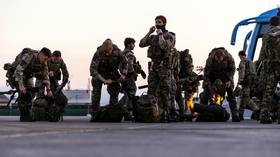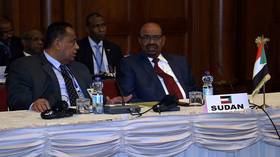UK troops hamper evacuation from Sudan – media

The UK was responsible for delays in the evacuation of other countries’ citizens from Sudan last weekend, sparking German discontent, the BBC reported on Thursday. The British Defence Ministry has dismissed the allegation as “inaccurate.”
Senior German political sources told the UK state broadcaster that London’s military operation to evacuate embassy staff from Khartoum on Saturday led to a temporary blockade of the Wadi Seidna airfield, which Berlin and other European nations had planned to use to evacuate their citizens.
The outlet’s sources alleged that the British forces landed without the permission of the Sudanese army, which angered them and resulted in the blocking of access to the site. According to them, this resulted in German rescuers losing at least half a day as negotiations to use the airstrip took place.
However, a spokesperson for the UK Ministry of Defence (MoD) told the BBC that it was “complete nonsense to claim” that British forces “landed in Sudan without permission from the Sudanese army.” “We had permission,” the source added.
The MoD said it was also inaccurate to suggest that Britain's efforts to evacuate embassy staff from Sudan had slowed down Germany's plans.
“Operating in such complex circumstances will always come with challenges, but we have worked extremely closely with our French, US and particularly German partners who have facilitated access to the airfield throughout this week, and of course we remain grateful to the Sudanese Armed Forces,” the ministry said, according to the BBC.
On Wednesday, Germany announced the end of its rescue mission in Sudan, with 780 people from over 40 countries, including 230 German citizens, flown out of the country, where the armed conflict has killed 512 people and injured 4,193 others, according to the country's health ministry.
Meanwhile, the UK has reportedly airlifted 536 people out of the over 2,000 stranded British nationals who have registered with the Foreign Office to be evacuated from the east African country.
British Foreign Secretary James Cleverly told the BBC on Thursday that “we wanted to ensure we didn't put British nationals into increased danger” while defending the pace of London’s evacuation response. “There is a risk to staying put; there is also a risk to moving around in the middle of a conflict,” he said.













